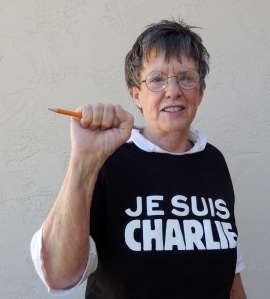Writing “real” book reviews, meant for public consumption, is a dicey business requiring the skills of a world-class diplomat. I write them occasionally, but writing reviews non-diplomatically and from a personal perspective seems like more fun. Here are some favorites from this week.

Karen Shepard
The Celestials, Karen Shepard
Wonderful, deftly nuanced historical fiction based on the (real-life) arrival of 75 young Chinese men to work in a shoe factory in North Adams, MA, in 1870. Slightly too much attention to labor unions for my taste, despite the fact that conflicts over cheap Chinese labor were largely responsible for the passage of the Chinese Exclusion Act of 1882, prohibiting the immigration of Chinese citizens to the U.S. until 1943. Still, with a shameless lack of political corrrectness I skimmed those sections in order to hang on to the backbone story, which is intelligently drawn, compelling and shocking in that way that makes you wonder what will happen. (Not to give anything away, but there’s an adulterous, cross-cultural affair that symbolizes an atavistic fear underlying all racial conflict and gives the narrative a zingy urgency.) Main characters and era are so well-developed as to create the illusion that the reader is actually there and privy to the inner lives of both New England Victorians with their innocent, churchy good intentions, and Chinese immigrants whose difficult, wary grasp on survival in what amounts to a senseless, Alice in Wonderland American world, feels real. The author is Chinese American, which may account for the seeming accuracy and depth of that fictional Chinese experience.

Roland Merullo
Vatican Waltz, Roland Merullo
Comfortably agnostic, I probably wouldn’t notice if the Catholic Church vanished overnight. Nonetheless, I belong to a Catholic community for the sole reason that I want to support its three legally ordained priests – two married women and a gay man (who jokes that he really wanted to be a nun.) I’ve been waiting for a novel that would explore issues around the ordination of women, and so was eager to read this one, which purports to be about a young woman who feels that she is called to be a Roman Catholic priest. It isn’t. What it is, is an interesting spiritual essay dressed in a novel’s costume that doesn’t fit.
Protagonist Cynthia Piantedosi is a young Catholic woman who lives in a working class Boston community and may qualify as the most boring character in contemporary American fiction except when she’s interpreting spiritual matters. Her theology is quite expansive and lovely if not remotely Catholic or even Christian, so readers may be forgiven for wondering why on earth she wants to become a Roman Catholic priest. A broad hint that the novel isn’t really about women’s ordination may be found in the single sentence dismissing the existence of some 64 women in the U.S. alone who are legally ordained Roman Catholic priests. If interested, see http://www.romancatholicwomenpriests.org/. Delete the already-weak novel plot, and the first 2/3 of the book could (and possibly should) be republished as a series of thoughtful spiritual impressions suitable for people of all (or no) religious persuasions.
But the final third? Disaster.
(Spoiler Alert) Cynthia goes to Rome with the intention to urge reconsideration of the Church’s obdurate refusal to ordain women. The streets are crawling with nasty Vatican henchmen out to kill her (as may have been the fate of her liberal priest advisor back in Boston), but she is spared because – although women aren’t supposed to be priests (silly girl!), they do have a spiritual calling. Women are called to get pregnant. Aarrgghh! Centuries of feminist struggle obliterated in one awful deus ex machina plot twist that hopelessly reinforces all institutional misogyny. Cynthia, who has never had sex with anybody, is pregnant. And we’re back to square one.

Jill Lepore
Book of Ages;The Life and Opinions of Jane Franklin, Jill Lepore
I love this book, love the scholarship, love the footnotes and totally love the rascal intent behind 442 indisputably erudite pages about a woman of whom almost nothing is known and so, one might assume, almost nothing may be said.
Jane Franklin was Benjamin Franklin’s sister, six years his junior and said to have been his favorite sibling in a brood of seventeen. While “Benny” educated himself into history, “Jenny” (Jane) may or may not have been raped, but in any event married at fifteen (when according to Lepore the average age at marriage for women at that time was twenty-four) a worthless, improvident scoundrel named Edward Mecom to whom she bore twelve children, only one of whom survived her.
And that’s basically it. Jane lived in poverty, struggling to take care of her children, grandchildren and great-grandchildren. A miserable life despite Lepore’s rather twee attempts at romanticizing the experience. But Jane could read and write, and at times exchanged letters with Ben. Almost all of her letters are lost, but Ben carefully preserved his correspondence, including his responses to Jane. It is from Ben’s replies that Lepore constructs approximations of what Jane might have said in the first place, her “opinions.”
But the greater delight in this work, disparaged for some reason by significant reviewers, is to be found in Lepore’s attention to Jane’s milieu. This is history made fascinating, not the toxic litany of kings and wars to which we were all exposed. The houses, the streets and food and slang usages of the time are pulled from obscurity, explained, made enjoyable. Books Jane owned or may have read, printed sermons with which she may have been familiar, newspapers, essays and interesting philosophical debates that were common fare and in which her brother frequently offered his opinions, are included in Lepore’s conversational style. History here is anything but tedious!
Amid the riches in Book of Ages, I will restrain my enthusiasm to only two in the interest of space. The first is the intense interest in writing that flourished then. Standardized spelling was new and its use the mark of an educated person. (I can’t help but compare the social status associated with standardized spelling then, to the social status associated with cell phone texting now, in which standardized spelling has perished.) Books on how to write letters were widely read, with specific models for every conceivable sort of correspondence – mother to unmarried daughter, uncle to recently-apprenticed nephew, etc. There was even a model letter entitled, “A Father to a Daughter in Service, on hearing of her Master’s attempting her Virtue.” As girls usually received no formal education, most who could read and write knew nothing of standardized spelling and used the old method in which words were randomly spelled as they sounded. Thus a convention arose in which women were expected to apologize for their ignorance as a part of every letter they wrote. Jane Franklin doggedly observed the convention.
The other detail destined to capture my personal attention was the “madness” of Jane’s son, also named Benjamin for his famous uncle. Jane’s son was buffeted by a psychiatric illness long before his illness would bear any name other than “lunatick.” There was a hospital, America’s first, founded in the 1750’s with Benjamin Franklin included among its founders. It was in Philadelphia, called Pennsylvania Hospital and offered treatment to those suffering psychiatric illnesses, but only to those who could pay. Ben Franklin’s nephew Ben was never a patient there. Instead, Franklin made arrangements for his nephew to be “confined” in a “house” in Burlington (MA) from which, near Christmas in 1776, during the Battle of Trenton, young Ben escaped. Jane never heard from her son again and thought he was dead, although there is later evidence that he wasn’t. His ultimate fate is unknown. In the eerie way of these things, I’ll be in Burlington for a writer’s conference in July, and will walk the streets of a place I’ve never been, acutely aware of Jane’s son who ran from whatever wretched prison that “house” was, and into oblivion. Thanks to Jill Lepore, somebody will remember. I will.
The author is Professor of History at Harvard, Chair of Harvard’s History and Literature Program, recipient of significant awards and a Pulitzer nominee. Clearly, she’s paid her academic dues, waded through years of grueling graduate study and managed to rise to the top of a system so refinedly brutal that it’s ground countless others to pulp. I like to imagine that with this work she’s finally been able to write in her own voice, a superbly educated, intellectual woman’s voice, and in so doing to reset entirely the rubric for the writing of history.
Read Full Post »
 Goodreads lists 250 novels set in Louisiana and the list is not complete. Tennessee Williams, Kate Chopin and Anne Rice come immediately to mind and set certain categorical standards, but in their wake are legions, including me. I wrote An Unremembered Grave after spending twenty years visiting my pal Doug in Angola, frequently as the guest of Ann Butler at her plantation B&B in St. Francisville, Butler Greenwood. I was and remain captivated by the complexity of Louisiana, its spirit and eerie allure. But for the macho and more grossly accurate version of that writerly experience, nobody can hold a candle to James Lee Burke.
Goodreads lists 250 novels set in Louisiana and the list is not complete. Tennessee Williams, Kate Chopin and Anne Rice come immediately to mind and set certain categorical standards, but in their wake are legions, including me. I wrote An Unremembered Grave after spending twenty years visiting my pal Doug in Angola, frequently as the guest of Ann Butler at her plantation B&B in St. Francisville, Butler Greenwood. I was and remain captivated by the complexity of Louisiana, its spirit and eerie allure. But for the macho and more grossly accurate version of that writerly experience, nobody can hold a candle to James Lee Burke.









